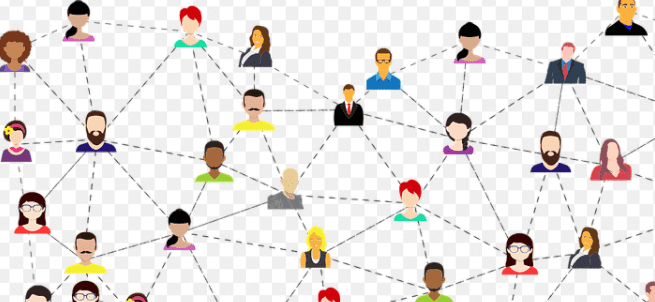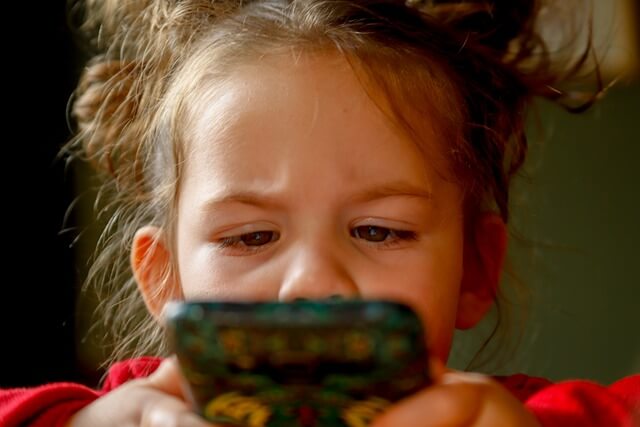What is Media Literacy? Should Every Kid Learn About It?
Media Literacy for Kids
ALL TOPICS
- YouTube Parental Control
-
- How to see your YouTube history?
- What is Metaverse? Parent Guide
- Put parental controls on YouTube
- Delete TikTok Account without Phone Number
- Ways to block YouTube channels
- Ways to Get Somone's IP Address and Hide IP Address
- A complete guide on YouTube parental control
- What is Fanfiction? Parents Guide
- Kids safe YouTube alternative
- Top 5 TikTok Alternatives
- Methods to restrict YouTube adult content
- Social Media App Parental Controls
- Parental Control Tips
Sep 11, 2024 Filed to: Parent's Guide Proven solutions
Social media has become an important part of most people's daily work routine. Social platforms have features that provide users with trending news around the globe. They allow you to reach a global audience. In a world where social media is pervasive in everyone's lives, it has become more difficult for parents and schools to properly address the digital challenges that the new media present for kids. If you are wondering: What is media literacy? Read on to find out about media literacy definition and if kids should learn about it.

What Is Media Literacy?
Most people don't know about the media literacy definition. It means that you can identify and understand the different types of media and the content they offer. Nowadays, kids can access a significant amount of information from various sources online. However, not all of them understand the reason and meaning of the content on social media platforms.
Should Kids Learn About Media Literacy?
The internet exposes kids to a variety of content. That's why parents need to teach their kids how to critically evaluate what they read, hear, and watch on social media platforms. That said, here are some reasons why it's critical to kids.
1. Adverse Health Effects of Media
Media can expose kids to violence and aggressive behavior. Children learn by imitation. They tend to emulate what they watch in the media because they perceive it as accurate. A kid may develop deviant behavior. It would help if you guide them on which media to avoid. Cases of obesity have been on the rise due to kids being less playful due to the prolonged time they watch television.

2. Advance in Technology
The modern world is increasingly becoming digital. Media and communication control every aspect of our life. That's why you should teach your kids how to use the media responsibly without harming themselves. Accepting that social media will influence your kids' lives as they advance is essential.
The best way to deal with the impacts of technology is by teaching your kids how to use it. Once a child is familiar with the content available on social media, they tend to assume it does not exist. Sadly for parents, this is not the way to approach the issue. Teach your child how to make the most use out of social media platforms and track their activities. In turn, they will learn more about the positive impacts of technology and avoid the negative side.
Most careers need you to have the technical competency to operate machines. You should be able to understand the content you are looking for. Appropriate media literacy skills can help a child to be ready for any technical issue that they might encounter in the future.

3. Helps Kids to Think Critically
Parents should teach their kids how to rate media content and come up with a decision on whether the content is appropriate for them or not. Media literacy teaches kids how to create new and relevant content. It also allows them to learn through examples based on their own opinions. A child who has these skills can decide quickly on information since they already have the basic knowledge.
Parents who want their kids to be students who understand what they learn should ensure that they get access to media literacy education. They will learn how to think before they decide to distribute information to other users. Essentially, this empowers responsibility when creating and sharing media content. It will allow them to think before posting and sharing any content on the internet. They will be aware that every piece of information they post reveals who they are.

4. Helps Kids to Become Smart Consumers of Media Information
Media literacy skills help kids to determine whether a certain type of information is credible. A student with literacy skills is likely to be a smart and wise consumer of media content. These skills will come in handy as your kid grows older. They will focus more on improving process skills instead of cramming knowledge.

5. Helps Kids Access Quality Sources
Parents should check all the data that their kids access when on the media. Teaching kids about the different types of media will help them know how to access quality sources on their own. What's more? It will teach kids some of the strategies that they can employ to search for useful information from the internet. A child with the necessary media skills has a high chance of becoming successful when it comes to quality information. What's the best part? Your child will focus on searching for information relevant to them whenever they are online.

How Can Parents Teach Kids About Media Literacy?
Parents need to teach their kids how to make the most out of media. Helping your kids to understand what is media literacy is key in raising them to develop critical thinking when they are using the internet. Below are some of the approaches parents can take to teach their kids and help them understand the importance of media literacy.
- Set Some Media Guidelines: One of the best techniques to educate your child about the different types of media and how to critique various forms of communication is by setting limits and boundaries. Kids love to explore, so you need to set some boundaries that they should follow. Be strict when it comes to the time your child spends on the media, the platform they use, and their online activities.
- Use the Media With Your Kids: You should be present when your child is on social media. Doing this will allow you to know what they like to talk about, their comments, and other suspicious activities. Support and track your kids' activities so that you can be aware of what they do online and guide them. In turn, this will help you to stay ahead of your kids' social media activities.
- Encourage Your Kid to Think Critically Before Sharing Any Information: Children do not know what is wrong and right. As a result, parents should foster critical thinking in their kids before they share content on social media platforms. You also need to educate them about the effects of posting sensitive information.
- Act as a Good Role Model: Kids learn most activities from their parents. As such, you need to be a good role model for your kid. Make sure they understand media literacy definition and how they can use the internet to impact their lives positively. Most kids are always asking themselves what is media literacy and how can they handle emotions? Teach your child how to handle strong emotions and be creative when they play with their peers. You can have a chat with your child and talk about how they will channel their emotions.
- Engage in Face-to-Face Communication With Your Child: Children can easily learn from face-to-face communication with their parents. Parents should create some time to share a conversation with their children and help them understand how to interpret and evaluate media messages.
- Create Tech-free Days: Family moments like mealtimes and social gatherings should be strictly tech-free. It improves your child's social skills instead of using their devices at all times. Additionally, it encourages healthy eating habits and interactive family time.
- Monitor Your Kid's Social Activity with FamiSafe: As with any other area of life, effectiveness matters when it comes to knowing how to monitor children for their safety. FamiSafe is an effective and easy-to-use app that can help you keep track of all your kid's online activities. Below are some features that can help you keep an eye on your child's social activity.
How can FamISafe Help Parents Teach Kids Media Literacy
There are many false information on social medias and our kids would need guide to tell the true from false. FamiSafe's Explicit Content Detection feature is useful when it comes to helping parents to stay in tune with what kids are discussing on social media.
Monitor Your Kid's Social Media Platforms
FamiSafe can detect when your kid sends or receive explicit content on their social media platform. The app will also notify you if someone sends your kids messages that contain explicit content. Therefore, the app can help you identify any potential danger before it becomes a problem.
- Location Tracking & Geo-fencing
- App Blocker
- Web Filtering
- Screen Time Control
- Smart Parental Control Setting
Now that you know the media literacy definition, you understand why it's important for your kid to learn about it. FamiSafe can help you when you want to keep an eye on your children's social media activities and prevent online dangers that may harm your kids.

Ankhi Bhattacharya
contributor Editor